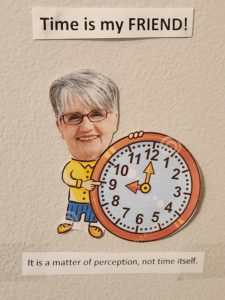 Here is the definition of shame – a painful feeling of humiliation or distress caused by the consciousness of wrong or foolish behavior.
Here is the definition of shame – a painful feeling of humiliation or distress caused by the consciousness of wrong or foolish behavior.
When we are children, we find ourselves shamed by adults around us. We take that shame and learn, over time, to shame ourselves. Here is the sentence that accompanied the definition of the word shame – “I tried to shame her into sharing.” In this case, someone hoped that by making another feel like a bad person for not behaving in a specified way, they could get them to behave in a different way.
As a parent, have you ever found this to be truly helpful? I haven’t. Children who feel shamed may do what we want, in the way we want, but it doesn’t encourage them to make a change from a place of power but to succumb from a place of powerlessness.
When Shame Cannot Survive
When an adult shows empathy, then shame cannot survive, in fact, isn’t even born. Here is the definition of empathy – the ability to understand and share the feelings of another. Empathy is the capacity to take another perspective, but more than that, it is truly caring about the person and how they feel.
I have a daughter who is very good at this. When her son, who is ten, is yelling and throwing a huge fit she remains calm. If his language is inappropriate, she reminds him firmly that he cannot talk to his mom like that. Then she asks questions and listens. She tries to find out why he is angry, frustrated or upset. She allows him to feel his feelings and then she works to help him navigate those feelings, all the while avoiding shaming him for behaving in a childish way, at ten.
Sometimes when I hear an exchange like this, I think in an old way in my brain – “Man, I would tell him to go to his room and when he’s in control then to come out and we can talk.” Yes, that is how I parented for many years. But today, I would hope that I could put that old thinking behind me and listen, empathize and then teach.
When a person knows deep inside of themselves that they are of value, that their feelings matter, that they are not broken or deficient in some way, that is a powerful place to be. When we feel shamed and believe there is something inherently wrong with us, that is a place of powerlessness.
It’s worth the effort to have empathy and empower our children rather than shame them. We won’t do this perfectly, but if we could do it even a portion of the time it would make a huge difference in how our children mature.
Tips to create a culture of empathy in your home
It’s much easier to teach children to be empathetic than to retrain adults. I know because I grew up in a time and home where empathy wasn’t considered the most valuable response – obedience was.
Here are some ways that you can increase the empathy that your children feel for others, as well as foster a more empathetic family culture in your home.
1. STOP what you’re doing and listen. Put the cell phone down, turn away from the screen, any screen.
2. LOOK your child in the eye while you’re listening and talking to them. If you can’t listen right then, tell them when you can. Later is not good enough. Say, “I will be free in fifteen minutes.”
3. Use ACTIVE listening. Listen to understand what they’re saying and feeling rather than trying to formulate a solution or response. Really care about what they’re saying. If you’re disinterested, frustrated with the interruption, or want to get to the next thing, trust me, your child will feel that.
4. Teach LATER. For now, listen. Ask good questions and mirror feelings. “How did that make you feel?” “That would have hurt my feelings too.”
4. Remember that every person is DIFFERENT. Your child is not you. They may respond to situations differently than you. Honor the differences. My husband thinks of people first. I think of projects first. That can cause us some issues unless we respect each other’s differences. When we do this, we avoid shaming one another for how we are.
5. MODEL empathy for your children. Practice empathy with your neighbors, the grumpy store clerk, the man who cuts you off in traffic, etc. I have a friend who, when someone does something stupid or rude in traffic, says out loud, “They must be having a bad day. Heavenly Father help them get where they’re going safely!” Her kids hear this on a regular basis, and it is informing them of how to care about others.
6. Give your kids some RESPONSIBILITIES. Children who have the responsibility to feed the cat or walk the dog or who participate in service projects tend to be more empathetic to others. When children learn to be responsible, they think more about others.
7. When we WORK TOGETHER as a family, we have the opportunity to create a culture of empathy. When we have regular family meetings/nights it provides an opportunity to model empathy as we consider everyone’s thoughts and ideas. When we do projects together it provides opportunities to resolve conflicts in non-shaming ways.
8. STOP! If you’re not feeling empathetic or if you find yourself dealing in poor ways with your children, STOP. Ask yourself why. Are you stressed, overly tired, is a child pushing your button in a specific way?
Now do what you need to do to get a handle on the problem, sit down, close your eyes, take deep breathes, go for a walk, hide in the bathroom and shed a few tears, whatever is needed. Then you will be able to get back on track.
9. AVOID DISCOURAGEMENT! Finally, if empathy isn’t something that you grew up with, doesn’t come naturally or if you just haven’t made it a practice, is it too late? NO. Anything, we think deeply about and then practice can become part of who we are. I know this is true because I have had to practice being more empathetic. I can still find myself in an non empathetic place, but I am far better than when I was a new parent. Don’t feel discouraged when you behave in a non empathetic way or when you shame a child to get your way. Just remind yourself what it is you want, the family culture you want, and try, try again.







